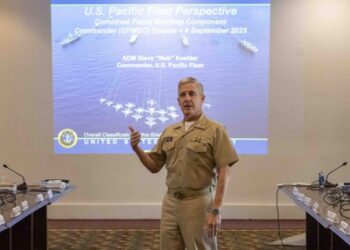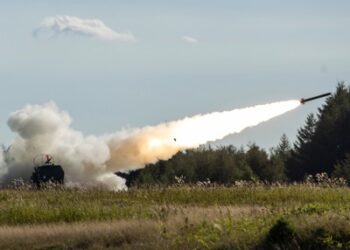HONOLULU—At the AFCEA TechNet Indo-Pacific conference, Maj. Gen. Jeffrey VanAntwerp, the leader of Special Operations Command Pacific (SOCPAC), emphasized that no single technology can solve all problems in military operations. He stated that the key to success lies in the “ability to integrate multiple systems,” highlighting the importance of open architecture in military technology. VanAntwerp asserted that reliance on standalone technology is risky, as it is more vulnerable to being compromised.
Drawing a parallel with the Karate Kid movies, VanAntwerp reminded the audience that strategies must evolve. He referenced how the character Daniel, trained in a signature crane kick, faced challenges in a new environment when he encountered more experienced opponents in “Karate Kid II.” This illustrates the necessity of adapting to different operational conditions rather than relying on a singular tactic.
For SOCPAC, VanAntwerp underscored the critical role of combining robotics, autonomy, and resilient networks to create a coherent operational picture. He indicated that disrupting adversaries’ targeting capabilities is essential for success in the Pacific theater.
He also cited a Ukrainian Special Operations Forces commander’s insights, noting Ukraine’s ability to deny Russia control over significant areas of the Black Sea and maintain defense against a larger invasion without traditional naval or air support. This achievement was attributed to a network of unmanned systems and the capacity to gather and process information effectively.
VanAntwerp questioned why the United States has been slower to adapt technology and strategies, suggesting that the absence of a tactical imperative, particularly the lack of casualties among American troops, contributes to complacency. He conveyed that urgency often drives faster innovation and adaptation.
Moreover, he urged caution when considering the “cost curve” associated with unmanned systems. VanAntwerp highlighted the necessity for either low-cost expendable systems or high-cost survivable systems. He warned against finding a financial middle ground, which could lead to unsustainable expenses for military operations.













